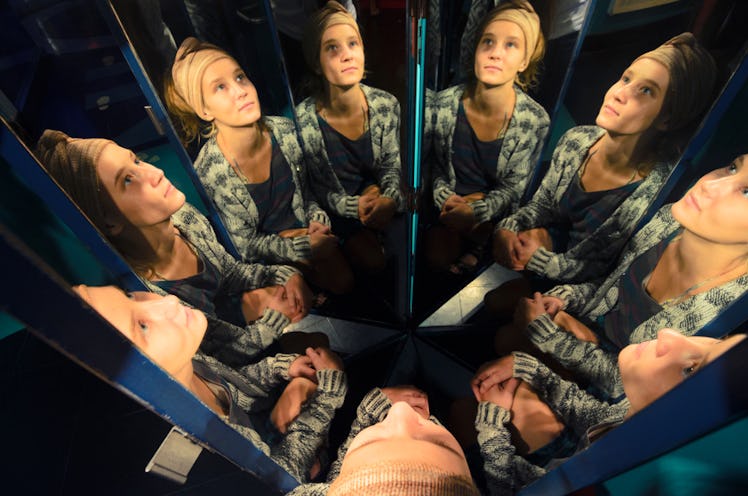
This New Study Sets The Record Straight On What Déjà Vu Really Is & It's So Wild
Having déjà vu can be a somewhat disorienting experience, there's no doubt about that. You're in a totally new situation, and yet you get this distinct feeling that it has all happened before. I had a déjà vu moment just yesterday, in fact. I was at a diner with a friend and their friend, a person I'd never met before, and yet I had this overwhelming feeling that the three of us had previously been there together. It's unsettling, you know? I've heard a lot of theories that debate what this phenomenon is, and whether déjà vu is real, but is there any legit science to the whole thing?
As it turns out, my friends, there has, indeed, been some research out there that aims to get to the bottom of this age-old phenomenon, and I hate to break it to you, but it seems like déjà vu isn't quite as magical or metaphysical as it feels.
Cognitive psychologist Anne Cleary, of Colorado State University (CSU), has investigated déjà vu for years now. In fact, in a 2012 study published in the journal Consciousness and Cognition, she and her team of researchers found that the phenomenon might be explained as simply having an experience that triggers a memory of something you did or experienced that feels similar, but your mind just isn't quite able to access that memory (or memories). I know, it's confusing, but think about it this way: It's kind of like your brain is registering an "error" message of sorts, or trying to make sense of a memory that isn't actually there.
Cleary's previous research indicated that these "false memories," or the feeling of having experienced something before, could essentially be "planted" — and that's what her new research set out to do.
Cleary's new study, which was published in the journal Psychological Science, essentially recreated déjà vu experiences in the study participants, specifically with the intention to examine their feelings of premonition — in other words, the feeling that you can predict what's going to happen next, based on your déjà vu experience.
According to the research, Cleary created dynamic virtual reality video scenes, in which the participants moved through a series of turns through various settings, like yards or streets. Then, later on, the participants moved through a different set scenes, which were intentionally mapped to be spatially similar to the previous scenes, but were aesthetically different. The researchers believed these subtle similarities between the two sets of scenes would successfully cause that déjà vu sensation in the participants, and make them think they could predict what they might see next.
Picture it this way: You're passing through a virtual backyard, where there's a bush on your left in one scene, then later, you're passing through the same sized yard, but now it's a junkyard, and there's a car on the left, in the same exact spot where the bush was in the previous setting.
Toward the end of the experiment, the participants were asked what they thought the final turn in the scene would be, and whether or not they felt like they knew what the next turn should be. According to the study's findings, about half of the participants who had been brought through the two spatially similar videos felt very strong premonitions and experienced déjà vu, but get this: They weren't more likely to give the correct answer as to what the next turn would be, than if they were to just choose randomly, without any influence of déjà vu or premonition.
Basically, these study participants felt confident they could predict what they'd see next in these virtual scenes, but their answers weren't actually accurate.
In an interview with CSU's College of Natural Sciences, Cleary explained her findings:
We cannot consciously remember the prior scene, but our brains recognize the similarity. That information comes through as the unsettling feeling that we’ve been there before, but we can’t pin down when or why.
She added,
My working hypothesis is that déjà vu is a particular manifestation of familiarity. You have familiarity in a situation when you feel you shouldn’t have it, and that’s why it’s so jarring, so striking.
Interesting stuff, right?
So, the next time you're getting that super weird déjà vu feeling, I'm sorry to tell you that it doesn't necessarily mean you're psychic, nor does it automatically mean you're experiencing a past life. It's likely just your very complicated, and very cool brain, doing its thing. But if you ask me, that's still pretty freaking awesome in and of itself.